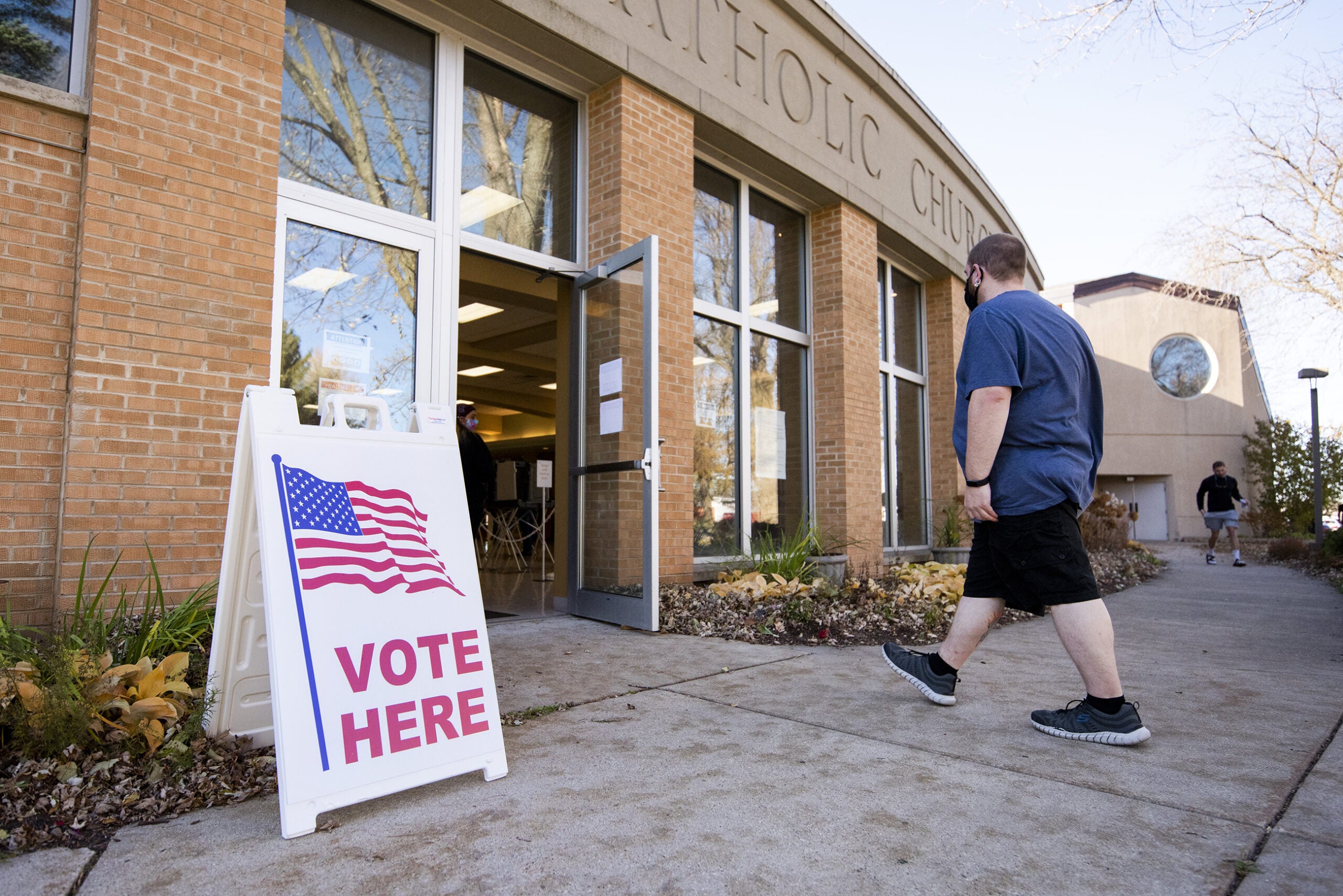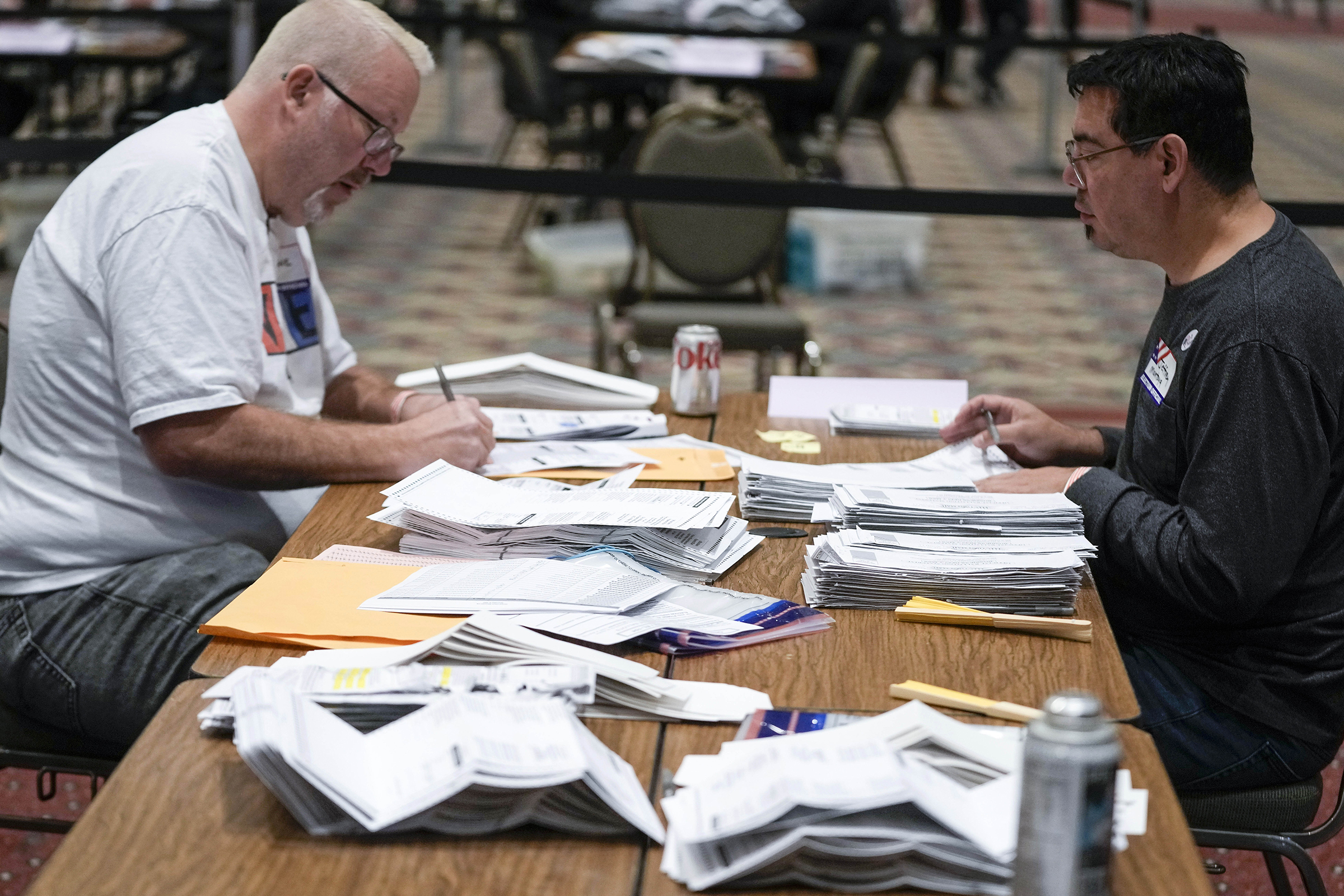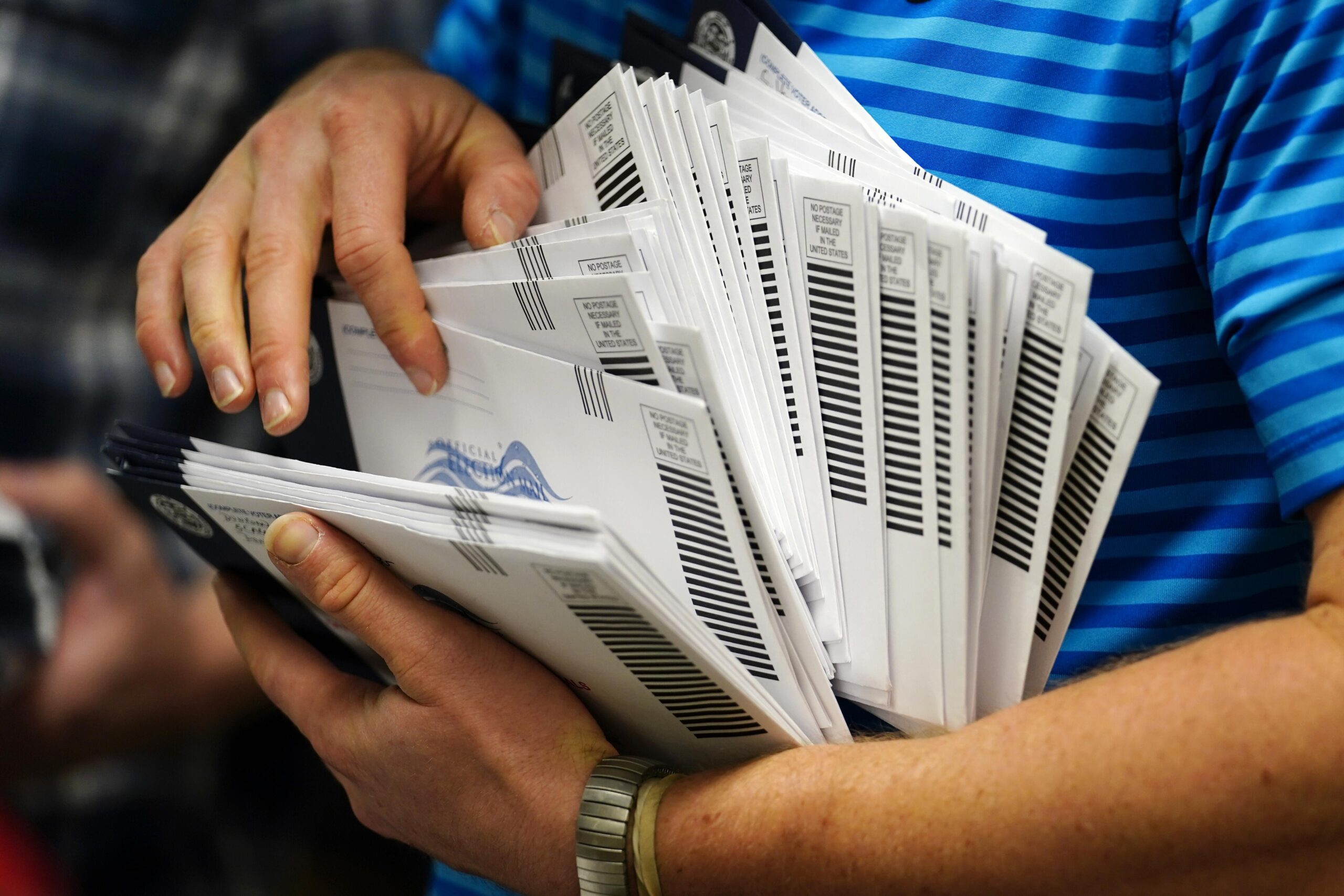A state Senate committee considered several bills Wednesday that would put new limits on absentee voting in Wisconsin.
The Republican proposals would place new restrictions on absentee ballot drop-off locations and ballot drop boxes and set new eligibility requirements for indefinitely confined voters. They are part of a larger package of GOP-sponsored election bills that mostly respond to partisan criticism of the 2020 presidential election.
Supporters of the measures discussed Wednesday argue they will increase public confidence in elections by clarifying election administration policies and voting procedures statewide.
News with a little more humanity
WPR’s “Wisconsin Today” newsletter keeps you connected to the state you love without feeling overwhelmed. No paywall. No agenda. No corporate filter.
“The intent of these bills would be to ensure election integrity and to protect the ballot,” said Sen. Alberta Darling, R-River Hills, who sponsored several of the proposals. “We want to make everything as clear as possible and if we put the issues in statutes, they’ll be more clear.”
More than a dozen groups, including AARP, Disability Rights Wisconsin and the American Civil Liberties Union of Wisconsin, have registered their opposition to the bills.
During committee testimony, Matt Rothschild, executive director of government watchdog group Wisconsin Democracy Campaign, argued the plans are “feeding a dangerous mass delusion” about voter fraud during the 2020 presidential election.
“This effort is reinforcing a pernicious lie all across the country and feeding a dangerous mass delusion all across the country about the legitimacy of the Biden presidency, about the legitimacy of our electoral process,” Rothschild told lawmakers. “You’re playing with fire here.”
One proposal would set new limits on who qualifies as an indefinitely confined voter in Wisconsin — people who cast their ballots by mail due to medical conditions. Current law allows indefinitely confined voters to bypass the state’s voter ID law, instead providing a witness signature on their absentee ballot application as proof of identity. That measure caused some consternation among Republicans in 2020.
Under the new proposal, the ID exemption for indefinitely confined voters would be eliminated. Additionally, a voter’s statement that they are indefinitely confined for voting purposes would have to be made under oath. If the voter is under 65 years old, they would also have to provide supporting documentation to verify they are indefinitely confined. The bill also says a pandemic or “outbreak of a communicable disease” does not qualify voters as indefinitely confined and removes anyone who achieved indefinitely confined status between March 12 and Nov. 6, 2020 from the list of qualifying individuals.
Republicans raised strong concerns in 2020 with guidance from the Dane and Milwaukee counties clerks regarding indefinitely confined voting during the pandemic.
Sen. Duey Stroebel, R-Saukville, argued people exploited the indefinitely confined voter law during the last election.
“Widespread use of this provision by some individuals who are not truly confined was a terrible abuse of process,” Stroebel said during committee testimony. “We must reform this provision of the law to protect it from abuse and ensure that it is a workable and transparent process for those who genuinely need it.”
However, advocates for people living with disabilities said the proposed changes would make the system far from workable.
“We think it’s going to place an additional burden for people who already have pretty difficult lives, and it could make it more difficult for them to vote,” said Barbara Beckert, director of the Milwaukee office of Disability Rights Wisconsin.
Another bill discussed Wednesday would limit who can deliver someone’s absentee ballot for them. Under the proposal, only a member of the voter’s immediate family, the voter’s legal guardian or a designated person who has not been called upon by anyone else to deliver a ballot could do so.
Tami Jackson, legislative liaison for the Wisconsin Board for People with Developmental Disabilities, said that will also be problematic for people with disabilities.
“You’re narrowing who somebody can ask to provide that service for them, and a lot of people rely on friends or neighbors or people who wouldn’t fall under that immediate (family) definition,” Jackson said.
Other bills discussed Wednesday would:
- Limit communities to one absentee ballot drop box, which must be attached to the building where the municipal clerk’s office is located.
- Limit absentee ballot drop-off sites to “as near as practicable” to the local clerk’s office and restrict the time the site may operate to the designated early voting period before the election.
- Bar election officials from adding missing information, like a voter’s address, to an absentee ballot envelope, even if they obtain the information from official records.
- Require municipalities that provide live stream footage of election proceedings to record the live stream and retain the video footage in their records for at least 22 months.
None of the proposals have been voted on in a Senate or Assembly committee. If approved by the full Senate and Assembly, Gov. Tony Evers could veto any of the bills.
Wisconsin Public Radio, © Copyright 2025, Board of Regents of the University of Wisconsin System and Wisconsin Educational Communications Board.







